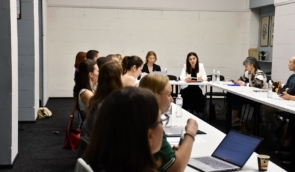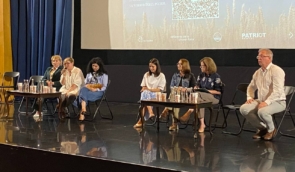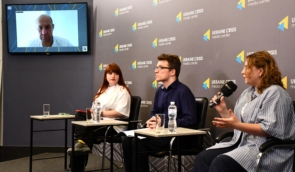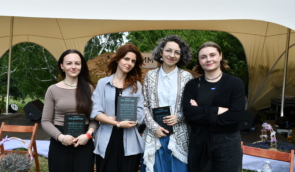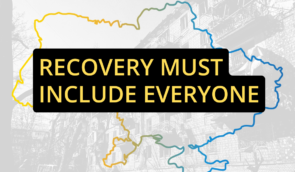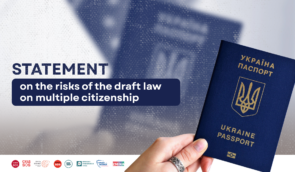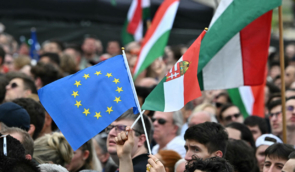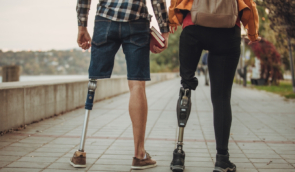In the first half of 2020, human rights defenders recorded 48 cases of persecution of activists
In the first half of 2020, human rights defenders recorded 48 cases of attacks and pressure on civil activists in the government-controlled territory of Ukraine. In addition, 9 bills were submitted to the Verkhovna Rada which restrict the work of civil society organizations.
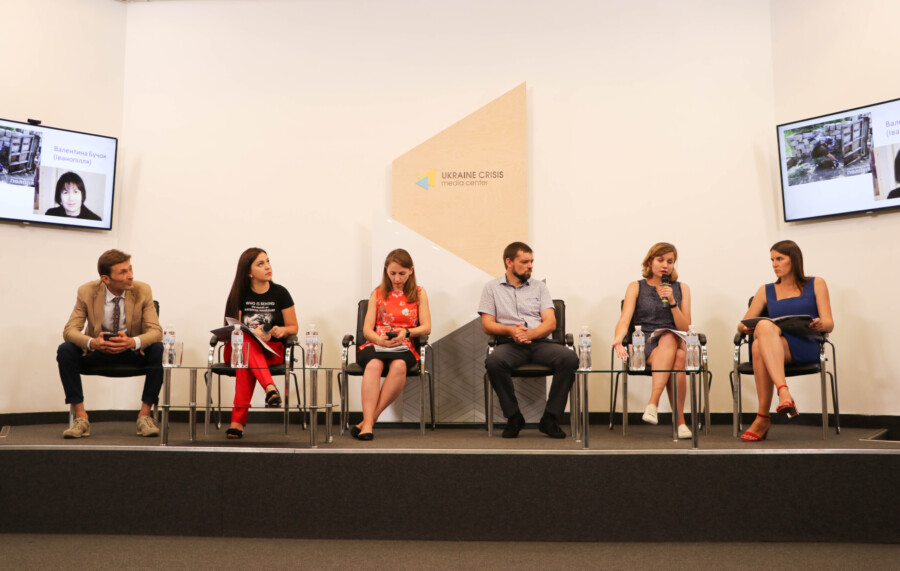
This was discussed at the press conference titled Activism During the Quarantine: Old investigations and new attacks on civil activists in Ukraine, which took place on July 31 at the Ukrainian Crisis Media Centre in Kyiv. The human rights defenders also presented a monitoring report about the persecution of civil activists and human rights defenders since the beginning of 2020.
As indicated by the ZMINA Human Rights Centre researcher Anastasia Moskvychova, out of the 48 incidents documented in the first half of 2020, 11 cases involved physical aggression against activists, 8 involved destruction or damage of their property, 7 involved intimidation and threats. The highest number of incidents took place in Kyiv (23 cases), Odesa Region has the second place (5), the third place is shared by Donetsk (3) and Kyiv (3) Regions.
According to Moskvychova, the most high-risk types of activism are still anti-corruption activities (9 cases of persecution), defending LGBT+ rights (5 incidents) and environmental protection (4 cases).
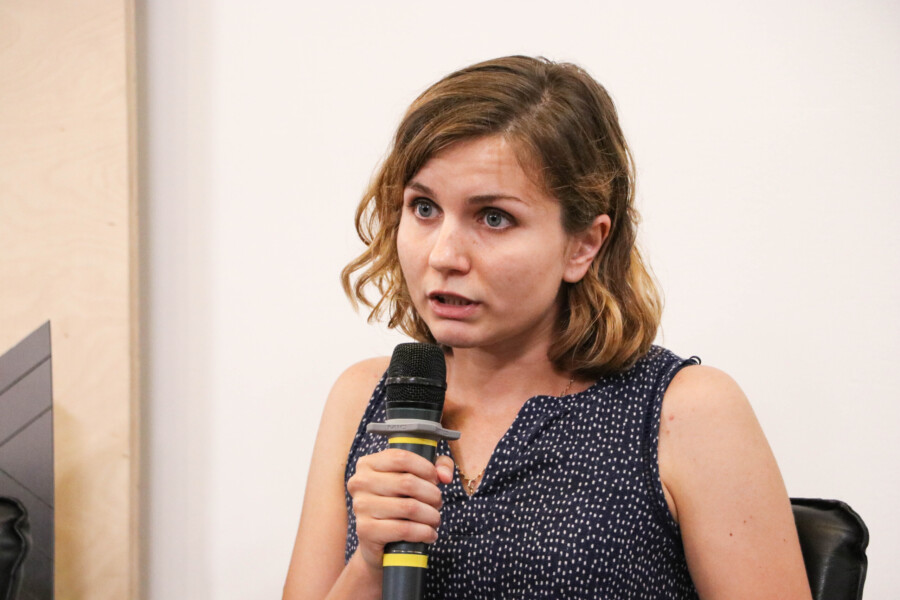 Anastasia Moskvychova
Anastasia MoskvychovaIn addition, since the beginning of the year, the Verkhovna Rada has registered a number of bills that threaten civil society. They equate the advocacy of civil society organizations to commercial lobbyism, introduce the concept of “foreign agents” and propose to lustrate those who come from the civil sector, ban protest actions near court buildings, introduce “polygraph tests” for activists, etc.
“At least nine of these bills which violate the Constitution and Ukraine’s international commitments, as well as illegally restrict the freedom of unions and associations in Ukraine, have been registered since the beginning of the year. They were submitted by MPs from three political factions: Opposition Platform — For Life, Servant of the People and Fatherland,” said Tetiana Pechonchyk, the head of the ZMINA Human Rights Centre.
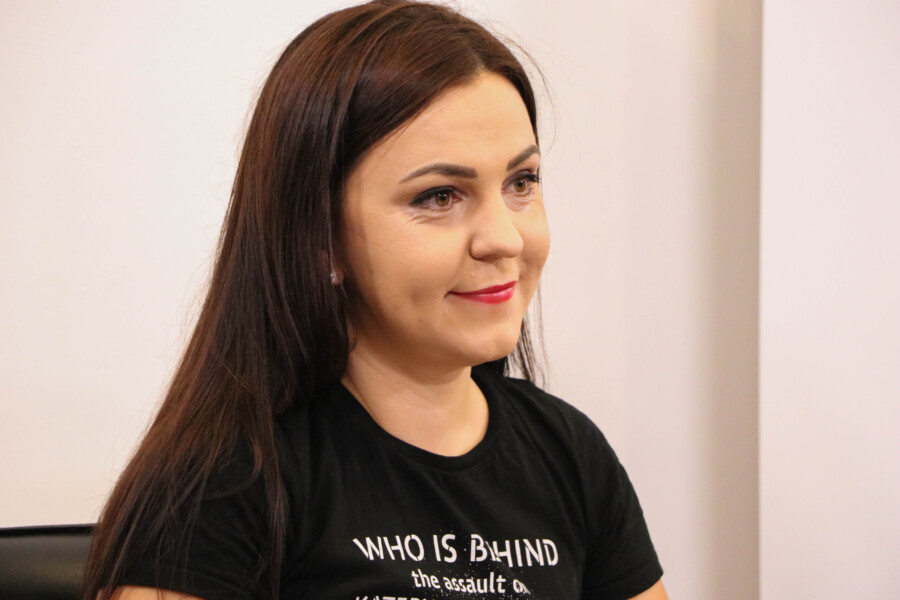 Tetiana Pechonchyk
Tetiana PechonchykShe added that most of the aforementioned legislative initiatives were not developed to regulate civil society specifically, since they are related to other spheres. But some provisions in these documents directly or indirectly affect the activities of civil society organizations and civil liberties in general. “In addition, some of the similar initiatives are synchronized with a discreditation campaign against the ‘Sorosiata’ and with the anti-western rhetoric promoted by specific political forces,” said Pechonchyk.
According to her, three more draft bills complicate the activities of human rights organizations working on anti-discrimination, protection of women’s rights and the LGBT community. In particular, these bills prohibit “propaganda of homosexualism,” remove the term “gender” from Ukrainian legislation, and criminalize calls for “family breakdown.”
Another trend that affected civil activism in this period was the COVID-19 epidemic. 5 cases among the ones described in the second quarter of this year were related to the quarantine in one way or another: in three cases, the police wrote misdemeanor reports on activists (most of them were later acquitted in court); in two cases, activists were attacked for reporting violations of the quarantine.
One of them was a civil activist and blogger Ihor Savluk from Tetiyiv in Kyiv Region, who exposes corruption schemes and fights against abuses of power by the local government. On April 24, he reported persecution by a group of people which included the local mayor Ruslan Maystruk.
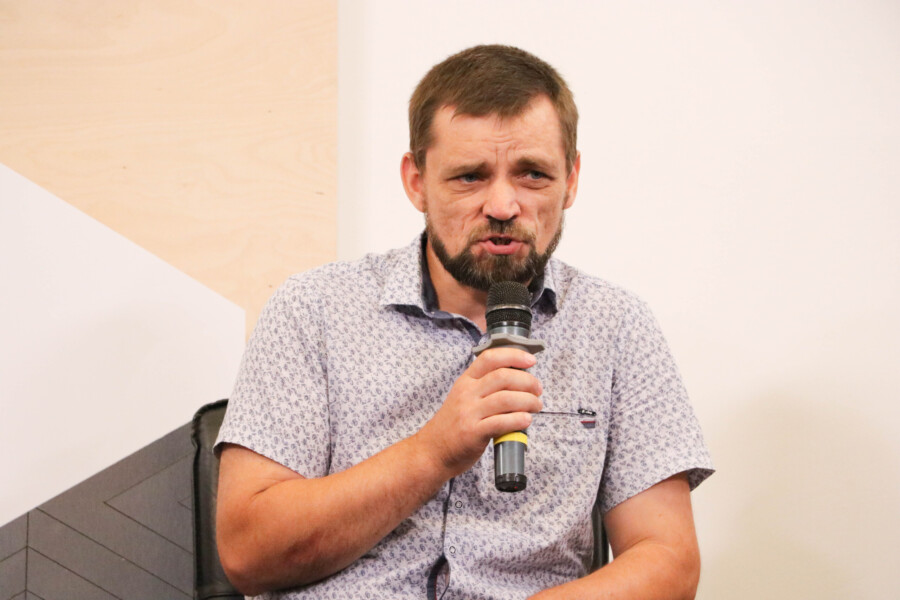 Ihor Savluk
Ihor SavlukAfter Savluk filmed the mayor, a city council worker, a military commissar and two representatives of the prosecutor’s office violating the quarantine and celebrating something next to the Military Recruitment Office, the windows of his house were broken, and the room was covered in petrol. In addition, Savluk got a call from an unknown number with threats: he was ordered to stop doing what he was doing, because next time, “it will be fiery.” The man recorded the call and posted it on social media, and reported it to the law enforcement. The police opened criminal proceedings based on the fact of property damage. At the moment, according to the activist, the case is with the State Investigation Bureau, and the investigation itself has been dragged out.
In the reporting period, ZMINA continued to monitor high-profile criminal cases related to human rights defenders and activists. In particular, these include the murder of the Kherson activist Kateryna Handziuk.
Maryna Khromykh, a participant of the Who Ordered the Assassination of Katia Handziuk? the initiative, pointed out that thanks to public pressure, the perpetrators of the crime were convicted, but this is not enough to stop the terrorizing of civil activists: “In hundreds of cases of attacks and murders, absolutely everyone involved goes unpunished. Including the law enforcement officers, who often sabotage the investigation and cover for the criminals. Thanks to the fact that all this time, we have not allowed the government (the previous and the current one) to forget about the murder of Katia Handziuk, today, Ihor Pavlosky, Oleksiy Levin and Vladyslav Manger are in jail. Two years ago, none of us would ever believe that persons of such a status would be locked up.”
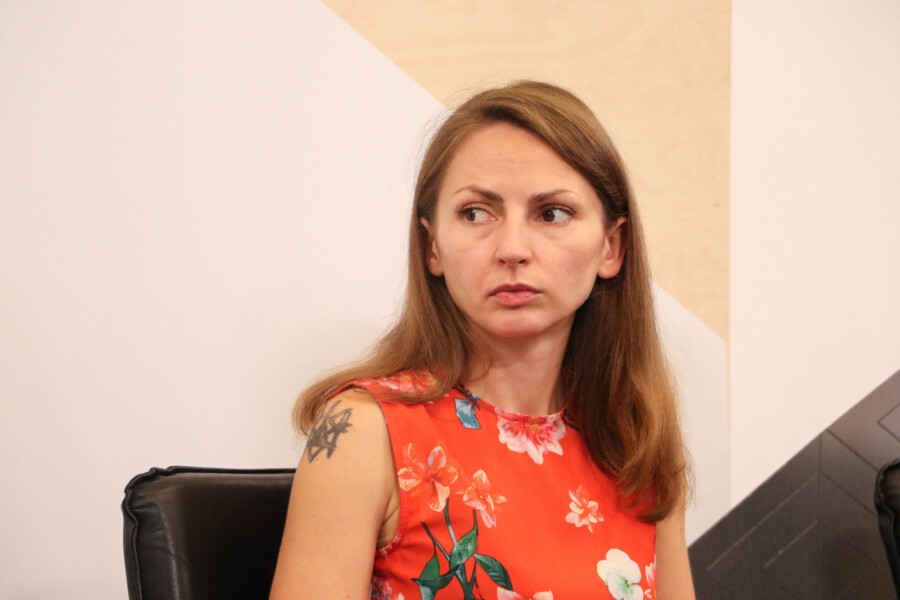 Maryna Khromykh
Maryna KhromykhAnother high-profile case was the case of the Odesa activist Serhiy Sternenko, who was attacked three times in 2018; during the last attack, Sternenko fatally wounded one of the two attackers, Ivan Kuznetsov. In June 2020, the activist was declared a suspect in the murder of his attacker.
Sternenko’s lawyer Vitaliy Tytych is convinced that “Such actions by the court are absolute nonsense because every citizen has the right to necessary self-defense and to protect his life and health. And this criminal case looks like discreditation and provocation.”
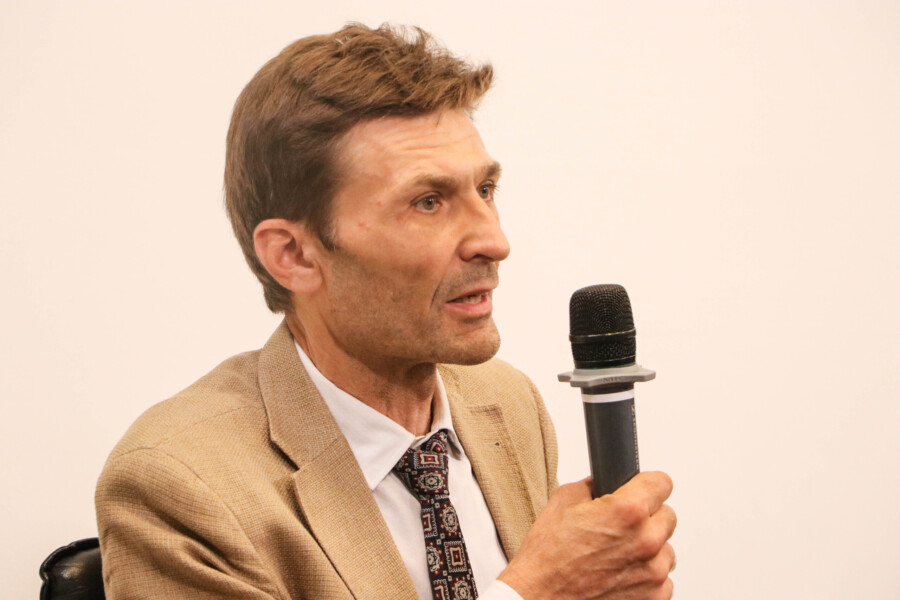 Vitaliy Tytych
Vitaliy TytychAt the moment, Sternenko is under house arrest, and Vitaliy Tytych believes that this preventive measure is nonsensical: “It’s a sign of political persecution of the activist, it is not aimed at the purposes of the criminal proceedings. It seems like the house arrest is needed to continue to hold civil society in tension and intimidate it, and to limit the activities of the activist himself.” In addition, according to the lawyer, the quarantine allowed to legally restrict the public’s rights during court hearings and not to let journalists in during the hearings, or to try and conduct them under a closed regime.
As for the legality of the restrictions themselves, Hanna Rozhkova, the deputy executive director of the Association of UMHRC, says that, unlike a number of European countries, the Ukrainian government de jure did not declare a state of emergency in the Ukrainian territory, but gradually strengthened the quarantine measures which de facto established a state of emergency and groundlessly restricted human rights, including the freedom of peaceful gatherings. And, as practice has shown, these restrictions of peaceful gatherings by law enforcement agencies were discriminatory and biased.
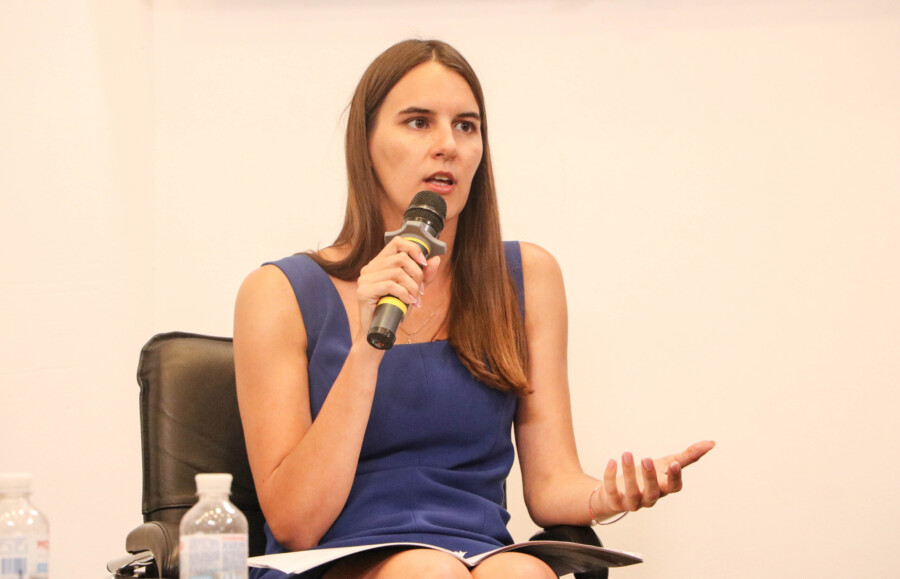 Hanna Rozhkova
Hanna RozhkovaThe report is available in Ukrainian and English.
Video from the press conference is available here.
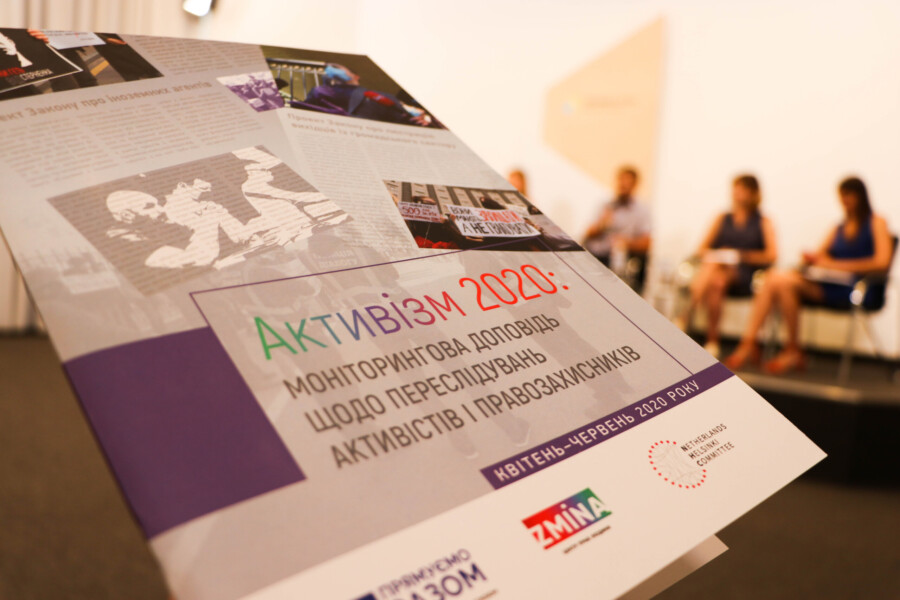
The Increasing the Role and Protection of Human Rights Defenders in Ukraine project is implemented by the ZMINA Human Rights Centre in partnership with the Netherlands Helsinki Committee with financial support by the European Union. The project focuses on legal and operational protection and support for human rights defenders and anti- corruption activists in Ukraine, on supporting the positive role of human rights defenders in society and establishing connections between them, on increasing the number of effective investigations of attacks on human rights advocates and activists, etc. The project is implemented from 2019 until 2022.
If you have found a spelling error, please, notify us by selecting that text and pressing Ctrl+Enter.

